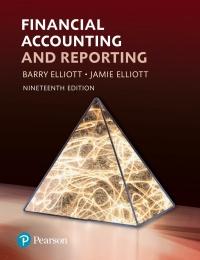Question
Before the law was changed about 15 years ago, banks arranged financial transactions that allowed companies to keep a portion of their liabilities off their
Before the law was changed about 15 years ago, banks arranged financial transactions that allowed companies to keep a portion of their liabilities off their books. The deals were structured to make it appear as if money was coming into a company from operating activities (sales, trading, etc.), rather than from loans.
Some banks were investigated for this practice and also for leaving part of the deal out of the written record. Critics stated that this had the effect of understating the company's liabilities and misleading investors and creditors. Banks maintained that as lenders, they had no obligation to ensure that clients recorded the transactions properly on their accounting books. Proper accounting, they said, is the responsibility of the client and its auditors. Answer the following 5 items for 20 points each.
1. Who are the stakeholders in this situation?
2. Should the lender be responsible for ensuring that the clients record the transactions correctly? If so, how? (keep in mind that the client's accounting books are maintained by the client, not the lender). Is there a better way to ensure this?
3. Is this deal more potentially harmful than other types, such as overstating revenues or overstating expenses? Why or why not?
4. Mention three ways (using accounting terms, concepts, or ratios) that underreporting liabilities can result in distortions or misrepresentations. Note: Must be specific in order to receive credit and the answer has nothing to do with Net Income or Profits.
Step by Step Solution
There are 3 Steps involved in it
Step: 1

Get Instant Access to Expert-Tailored Solutions
See step-by-step solutions with expert insights and AI powered tools for academic success
Step: 2

Step: 3

Ace Your Homework with AI
Get the answers you need in no time with our AI-driven, step-by-step assistance
Get Started


